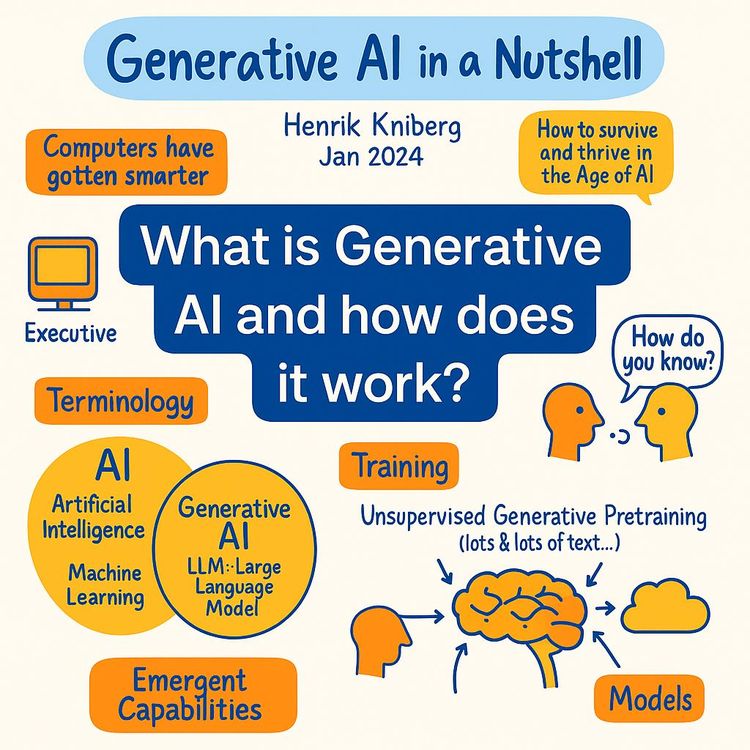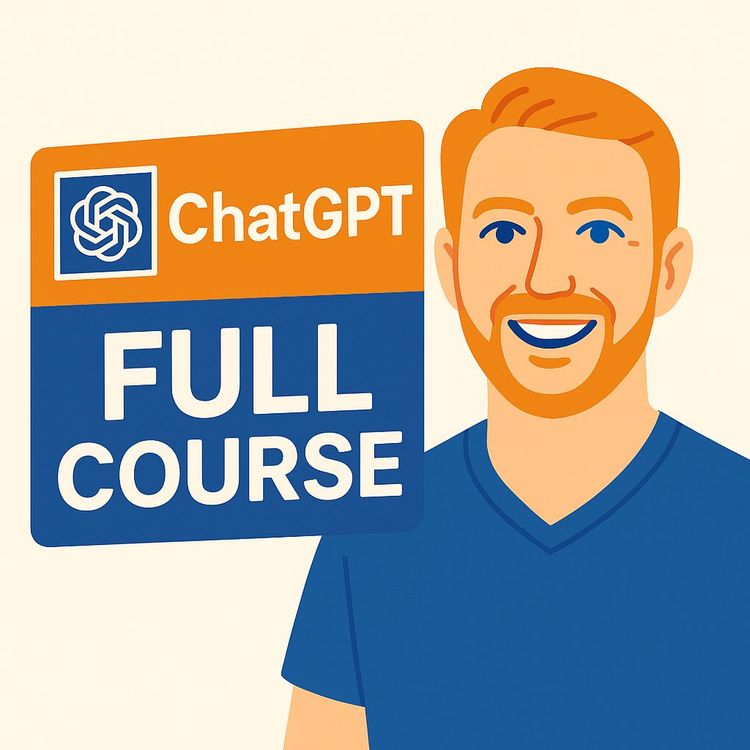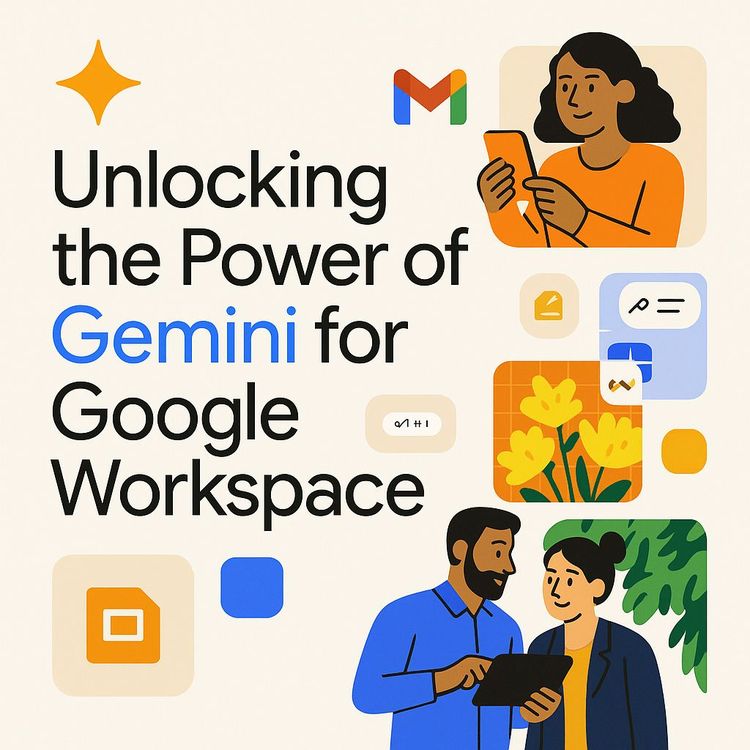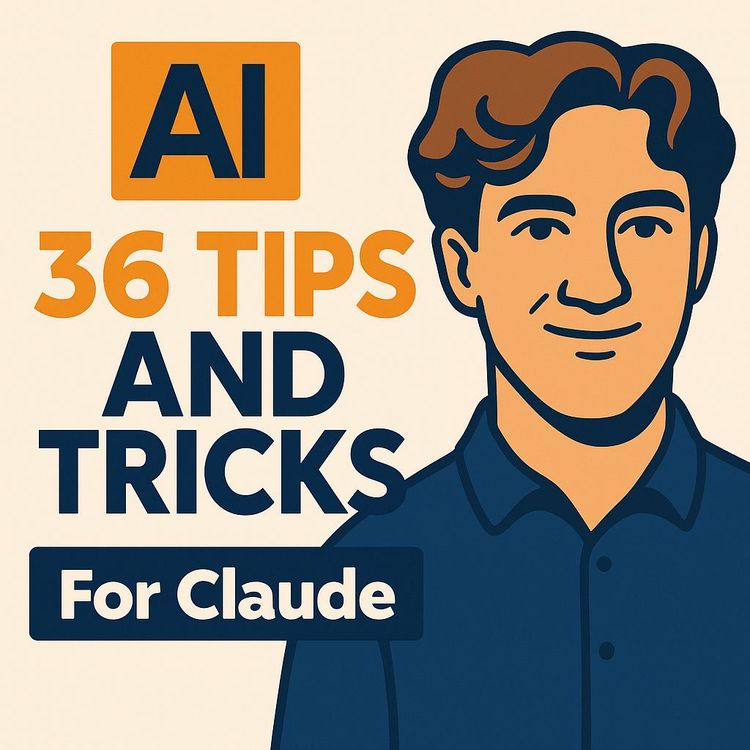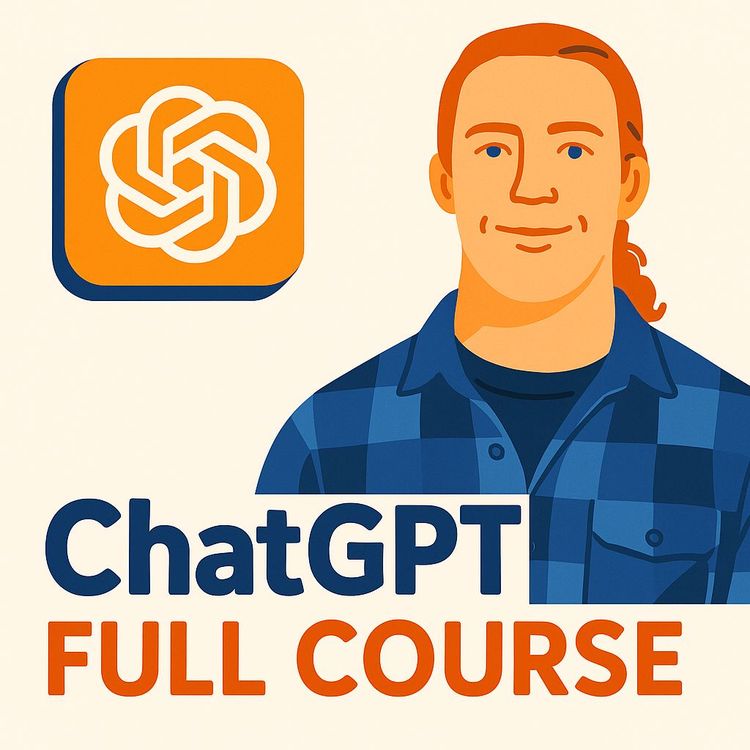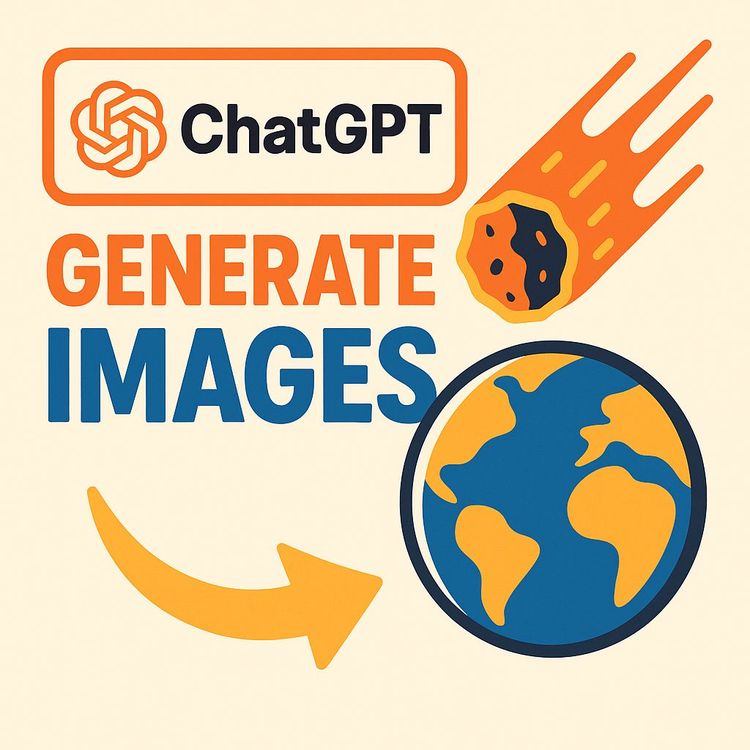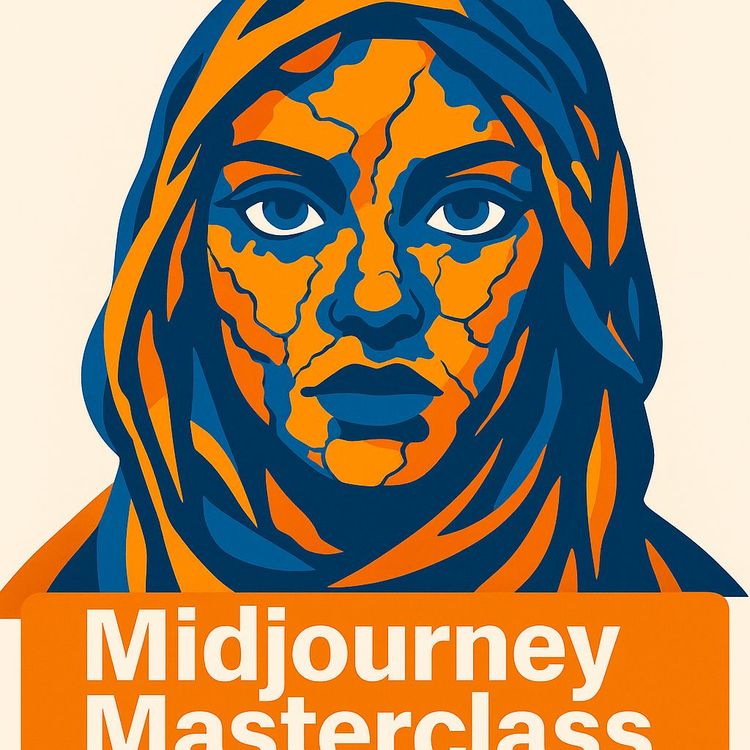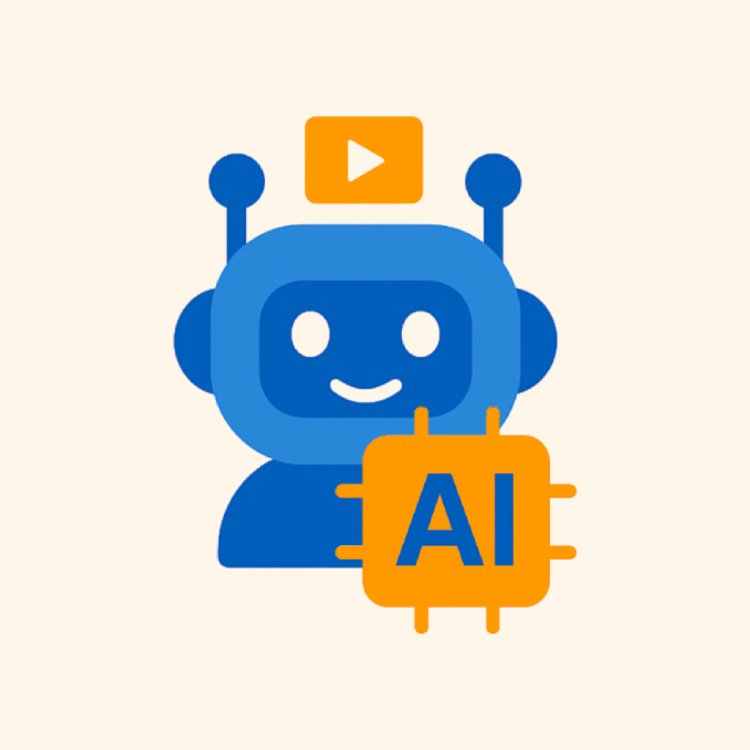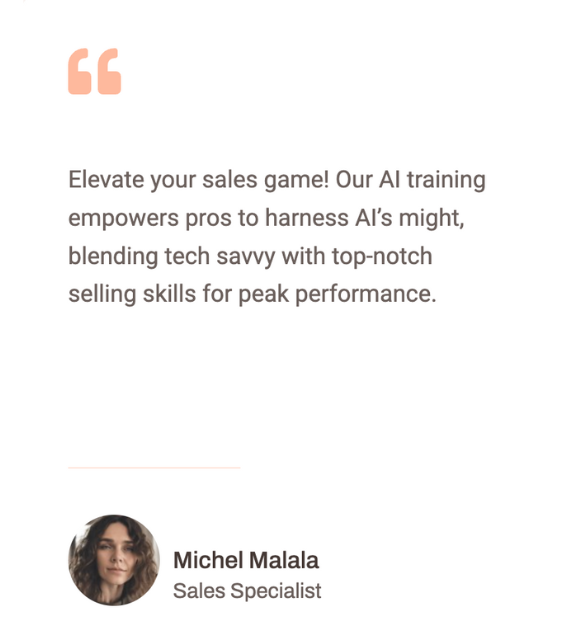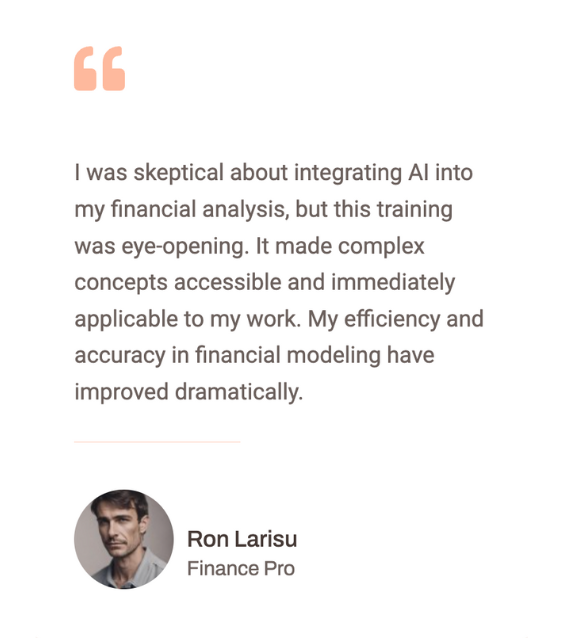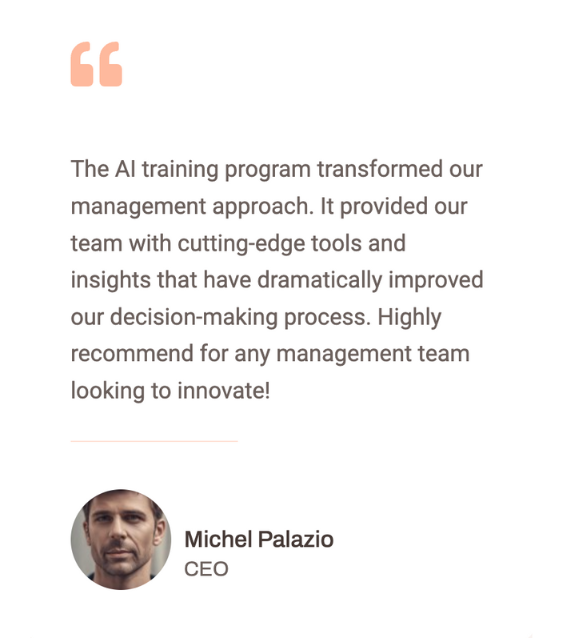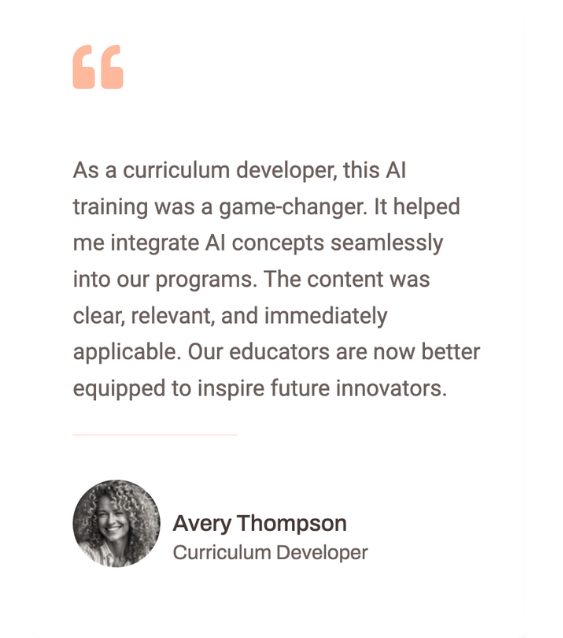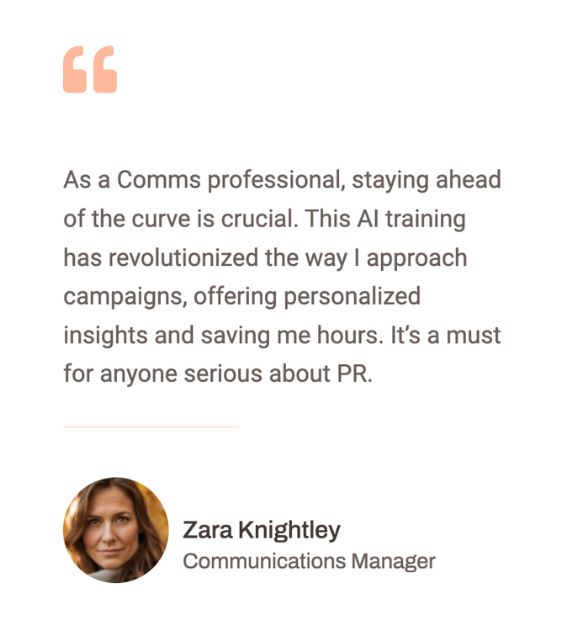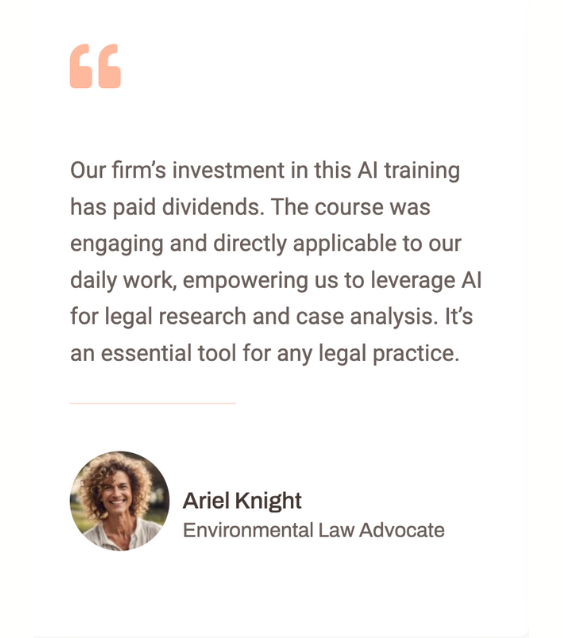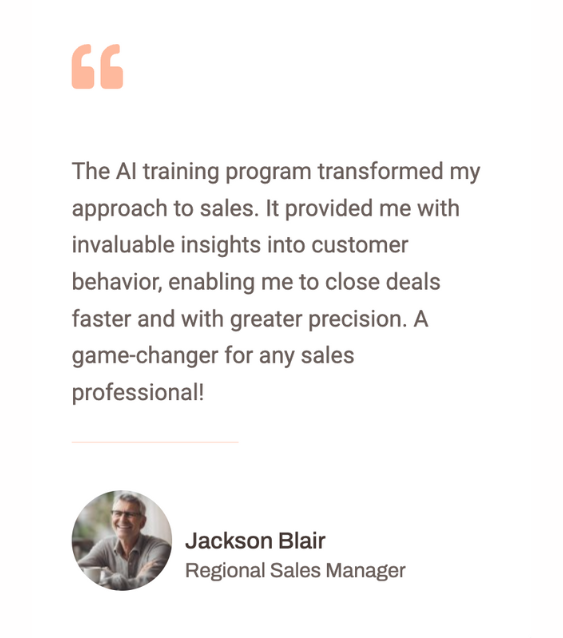Video Course: AI Marketing Masterclass [Full Masterclass]
Dive into the AI Marketing Masterclass to gain the skills and insights needed for thriving in today's AI-driven marketing landscape. Learn to blend AI with authentic storytelling and ethical practices, ensuring your content stands out.
Related Certification: Certification: AI Marketing Strategies & Implementation Expert
![Video Course: AI Marketing Masterclass [Full Masterclass]](https://cdn.completeaitraining.com/videothumbnails/small/video-course-ai-marketing-masterclass-full-masterclass_small.jpg)
Also includes Access to All:
What You Will Learn
- Use AI tools for ideation, variation, and scaling copy
- Apply a seven-point strategic storytelling framework
- Craft authentic brand stories that cut through AI noise
- Implement ethical AI practices and robust fact-checking
- Build content distribution strategies and feedback loops
Study Guide
Introduction: Navigating the AI Marketing Landscape
The "AI Marketing Masterclass [Full Masterclass]" is designed to equip marketers with the skills and insights needed to thrive in an era where AI-generated content is increasingly prevalent. As AI tools become more sophisticated and accessible, the challenge for marketers is to differentiate themselves and their brands amidst this digital noise. This course offers a comprehensive guide to leveraging AI while maintaining human authenticity, ethical considerations, and effective storytelling. By the end of this masterclass, you'll understand how to harness the power of AI in marketing, create compelling growth stories, and ensure your content stands out.
The AI Revolution in Content Creation
The AI revolution is not a future event; it is happening right now. From students using AI for homework to marketers leveraging these tools for content creation, AI's presence is undeniable. The masterclass begins by illustrating this reality with a humorous South Park clip, underscoring how effortlessly AI can generate text. This sets the stage for understanding the pervasive nature of AI in content creation.
Example 1: Imagine a marketing team using AI to draft initial versions of blog posts. This allows writers to focus on refining and adding a human touch, rather than starting from scratch.
Example 2: An AI tool could assist in generating product descriptions, freeing up marketers to concentrate on strategic planning and creative campaigns.
The Imminence of AI-Generated Content
Projections indicate that AI-generated content will soon dominate the digital landscape. According to journalist Nina Shik, by the year 2026, an estimated 90% of online content could be produced by AI. This tidal wave poses a significant challenge for marketers striving for visibility.
Example 1: A clothing brand using AI to generate social media posts must find ways to inject its unique brand voice into the content to engage its audience.
Example 2: A tech company might use AI for customer support chats, but ensures human agents are available for nuanced inquiries, maintaining a balance between efficiency and personal connection.
Human Authenticity as a Differentiator
In a world saturated with AI-generated content, human authenticity becomes the key differentiator. Authenticity stems from truth, real purpose, genuine connection, and authentic knowledge. Research shows that employee advocacy and team storytelling, driven by human voices, have a significantly higher reach than company profiles.
Example 1: A personal finance advisor shares their own journey of overcoming debt, providing authenticity that resonates more than generic advice.
Example 2: A local restaurant features stories from its chefs, creating a personal connection with patrons that AI-generated content cannot replicate.
The Importance of Ethical AI Use
As AI becomes more integrated into marketing, ethical use becomes crucial. Consumers, employees, and business partners increasingly prioritize businesses that align with ethical standards. This involves being mindful of one's purpose and taking social, environmental, and technological responsibility, especially in AI use.
Example 1: A company that uses AI for data analysis ensures transparency about how data is collected and used, building trust with its customers.
Example 2: A nonprofit leverages AI to optimize donation campaigns while maintaining ethical standards by being transparent about AI's role in targeting potential donors.
Growth Storytelling: A New Approach
The masterclass introduces "growth storytelling" as a method that aligns the growth goals and stories of the company, its people, and its audience. This approach emphasizes understanding the brand's story, the audience's story, and finding the intersection in a problem-solution-result structure.
Example 1: A startup aligns its growth story with its mission to provide sustainable products, sharing stories of impact that resonate with environmentally conscious consumers.
Example 2: A health app company shares user stories about how their app helped achieve fitness goals, aligning their growth with user success.
Shifting Marketing Approaches
The course advocates for a shift in marketing focus from demand generation to conversation creation, from employee advocacy to team storytelling, and from content marketing to growth storytelling. These shifts emphasize creating meaningful interactions and shared growth narratives.
Example 1: Instead of focusing solely on lead generation, a software company creates webinars that foster community discussions about industry trends.
Example 2: A fashion brand encourages employees to share personal style tips, creating a team storytelling approach that enhances brand authenticity.
Fundamental Storytelling Principles
Despite AI's rise, the core principles of effective storytelling remain essential. A story is a transformational sequence of events that builds and resolves tension. Key principles include calm confidence, writing to be understood and remembered, surprising the audience, and inspiring action.
Example 1: A travel agency crafts stories around customer adventures, using vivid sensory language to evoke emotions and inspire future bookings.
Example 2: A tech company uses storytelling to explain complex products, ensuring clarity and simplicity to engage a broader audience.
Strategic Storytelling Structure
The masterclass introduces a "seven-point Strategic storytelling structure" to guide content creation and prompt engineering. This structure includes defining the subject, goals, audience needs, main thought and feeling, hook, supporting thoughts, and call to action.
Example 1: A nonprofit uses this structure to create compelling fundraising campaigns, clearly outlining the problem, solution, and impact.
Example 2: A beauty brand crafts product launch stories using this framework, ensuring a cohesive narrative that resonates with its audience.
The Power of a Compelling Headline
A great headline is crucial for drawing people into a story. It should convey what the story is about, who it's for, and the promise or value proposition. Using keywords and power words enhances its effectiveness.
Example 1: An online magazine uses headlines like "Transform Your Home Office with These Simple Hacks" to attract readers with clear and enticing promises.
Example 2: A fitness blog uses "Unlock Your Best Self: 10 Tips for a Healthier You" to engage readers seeking personal improvement.
Intelligent Use of AI Copy Generators
AI copy assistants are valuable for ideation, variation, and scaling simple copy. However, AI cannot think or authentically represent a unique brand voice. Effective use requires strategic thinking, specific input, and choosing the right tool for the task.
Example 1: A marketing team uses AI to generate initial ideas for a campaign but relies on human creativity to refine and execute the final concept.
Example 2: A retailer uses AI to create multiple ad variations but ensures a human touch in the final selection to maintain brand consistency.
The Human Role as Editor-in-Chief
As AI takes on junior copywriting roles, human marketers evolve into "editor-in-chiefs." This involves ensuring content resonates, optimizing for clarity, fact-checking, and human proofreading. This process enhances the marketer's skills and understanding.
Example 1: A content manager reviews AI-generated articles, making adjustments for tone and accuracy before publication.
Example 2: A social media strategist uses AI to draft posts but edits them for brand alignment and audience engagement.
Ethical Considerations in AI Marketing
The masterclass emphasizes the ethical responsibility of marketers in the AI age, particularly concerning misinformation and deepfakes. Core ethical principles include doing and saying what is right and true, and avoiding harm.
Example 1: A media company ensures its AI-generated content is fact-checked and transparent about its sources to maintain credibility.
Example 2: A brand avoids using AI-generated deepfakes in marketing, prioritizing ethical storytelling over sensationalism.
Strategic Content Distribution
Effective content requires a robust distribution strategy. This involves focusing on the right channels, prioritizing important content, and distributing consistently over time. The masterclass mentions a "content distribution framework" as a tool for this.
Example 1: A brand uses analytics to identify top-performing channels and focuses its distribution efforts accordingly.
Example 2: A company schedules regular content releases to maintain audience engagement and brand visibility.
Feedback Loops for Continuous Improvement
Gathering and acting on feedback, both from data analytics and human interaction, is crucial for refining storytelling and distribution efforts. This continuous improvement process ensures content remains relevant and effective.
Example 1: A marketing team uses customer feedback to adjust its messaging and improve future campaigns.
Example 2: An e-commerce brand analyzes purchase data to refine its product descriptions and enhance user experience.
Conclusion: Mastering AI Marketing
By completing this course, you now possess the knowledge and skills to effectively navigate the AI marketing landscape. Emphasizing human authenticity, ethical considerations, and strategic storytelling will allow you to stand out amidst the growing wave of AI-generated content. Remember, while AI offers significant efficiencies, human creativity and ethical practices remain fundamental to marketing success. Apply these insights thoughtfully to create impactful and authentic marketing campaigns.
Podcast
There'll soon be a podcast available for this course.
Frequently Asked Questions
Introduction
Welcome to the FAQ section of the 'Video Course: AI Marketing Masterclass [Full Masterclass]'. This resource is designed to answer your questions about AI in marketing, from the basics to advanced concepts. Whether you're a beginner or a seasoned professional, you'll find insights and practical tips to enhance your understanding and application of AI in your marketing strategies. Let's dive in!
With the rise of AI copy generators, how can marketers ensure their content stands out from the increasing noise?
To differentiate content in an AI-driven landscape, focus on human authenticity ethically used and intelligently combined with technology. As AI produces more content, audiences will increasingly seek genuine human connection, real purpose, and authentic value. Marketers should leverage their unique human voice, experiences, and perspectives in their storytelling. This involves understanding and reflecting the true values and purpose of their brand and connecting with audiences on an emotional level that AI cannot replicate.
Is the AI revolution in content creation imminent, or is it already here?
The AI revolution in content creation is already here and has been for some time. As evidenced by tools using open AI for writing tasks and the increasing use of such tools by marketing professionals, students, and others, AI is actively shaping the content landscape. Projections suggest that a significant majority of online content could be AI-generated or assisted by as soon as 2026. The question now is not when it will arrive, but how we want to utilise and navigate this reality.
Given that humans have been telling stories for millennia, why is storytelling so crucial in modern marketing, especially with AI advancements?
Storytelling is a fundamental human trait that aids in understanding, retention, inspiration, and action. It provides structure to communications, helps to convince and connect with audiences, and makes messages more memorable. Even with AI's ability to generate text, the underlying power of a well-crafted story – with a beginning, middle, and end, building and resolving tension – remains essential for effective marketing. It allows brands to communicate their value and connect with their audience's needs and aspirations on a deeper level.
How can marketers create better content faster, and how does AI fit into this process according to the source?
The source suggests shifting the focus from simply generating demand to creating conversations through growth storytelling. This approach aligns the growth goals of the company, its people, and its audience. AI tools can assist in this process by helping to ideate content ideas rapidly, create variations of existing content for different platforms or angles, and scale the production of simpler copy like social media captions or ad variations. However, it's crucial to remember that AI cannot truly think, understand human nuances, or capture a brand's unique essence, so human oversight and strategic direction are paramount.
What is 'growth storytelling', and how does it differ from traditional content marketing?
Growth storytelling is a vision and approach to brand storytelling and content marketing that focuses on the alignment of growth goals and stories between a company, its people, and its target audience. It recognises that all parties are evolving and seeks to create content that mutually advances their growth. This differs from traditional content marketing, which may primarily focus on generating leads or promoting products without the same emphasis on shared growth narratives and authentic connection.
What key principles should marketers keep in mind when crafting compelling stories for their audience?
The source outlines five key principles for great storytelling:
* Write/tell with calm confidence: Achieved through preparation and structure.
* Write/tell to be understood: Know your audience, keep it simple and short.
* Write/tell to be remembered: Use emotion, sensory language, and relatable characters.
* Write/tell to surprise: Offer something new or a new perspective.
* Write/tell to inspire action: Clearly direct the audience on what to do next.
How can marketers effectively integrate AI copy generators into their content creation workflow while maintaining quality and authenticity?
AI copy generators should be used to boost human creativity, not replace it. They excel at ideation, creating variations, and scaling simple copy. Marketers should treat AI as a junior copywriting assistant, with themselves as the editor-in-chief. This involves providing clear and strategic input (prompt engineering), and then thoroughly editing the AI-generated content for relevance, clarity, correctness (facts, grammar, spelling), and, most importantly, human authenticity and brand voice. Always conduct a "human test" by having a person proofread the content before publishing.
In an era of increasing AI-generated content and potential "info apocalypse", what ethical responsibilities do marketers have?
Marketers have a significant ethical responsibility to do and say what is right and true, aiming to help themselves and others grow. They should also strive to do no intentional or avoidable harm with their knowledge, stories, and voice. This includes being mindful of the potential for misinformation and disinformation, ensuring the accuracy of their content, and using AI ethically and responsibly in their marketing practices. Building trust through transparency and integrity is crucial in this evolving information landscape.
What is one common use case for AI copy generators as highlighted in the masterclass?
The South Park example illustrates the use of AI copy generators, specifically ChatGPT, for tasks such as responding to text messages in a manner similar to how someone else might, highlighting its potential for interpersonal communication and mimicking specific styles.
What key human capability does Yuval Noah Harari suggest is central to our evolution and dominance?
Yuval Noah Harari suggests that our storytelling capability as human beings is a defining quality for our species and has been crucial for our evolution and growth to becoming the dominant species on the planet.
What was the significance of 1996 mentioned in the context of marketing and content?
In 1996, the phrase "creating content" or "marketing content" was reportedly coined at a gathering of journalists, marking a significant point in the formal recognition and discussion of content as a marketing tool.
What are some of the top problems faced by marketers today regarding content?
Marketers today face significant challenges including not having enough quality content and the content they do produce not being effective enough to reach enough of the right people amidst the overwhelming amount of online content.
What are the potential dual impacts of generative AI on the job market according to Sam Altman?
According to Sam Altman, generative AI is likely to cause the loss of potentially millions of jobs but will also create potentially millions of new jobs, indicating a significant shift in the employment landscape.
What is Nina Schick's projection about AI-generated content?
Nina Schick's research estimates that upwards of 90% of online content may be produced by AI by as soon as 2026, highlighting a potentially dramatic increase in AI-generated material online.
What is the core principle for standing out amidst AI-generated content?
The core principle for standing out is to use human authenticity, ethically used and intelligently combined with technology, as a way to differentiate amidst the increasing volume of AI-generated content.
What key shift does the masterclass suggest in marketing approach, moving away from demand generation?
The masterclass suggests a shift from demand generation to "conversation creation", implying a move towards fostering dialogue and engagement with potential customers rather than solely focusing on lead acquisition.
What are the three key areas where AI copy assistants can be particularly helpful in content creation?
AI copy assistants are particularly helpful for ideation to overcome creative blocks, variation to create multiple versions of existing content for improvement, and scaling the creation of smaller, simpler forms of copy like social media captions or ad variations.
What is the potential impact of AI copy generators on the marketing landscape?
AI copy generators present both opportunities and challenges in marketing. They offer the potential to enhance productivity, creativity, and personalization in content creation. However, they also pose challenges such as maintaining authenticity, ensuring ethical use, and addressing the potential for misinformation. Marketers need to balance leveraging AI's capabilities with preserving human elements in their strategies.
Why is "human authenticity" considered crucial in an era of increasing AI-generated content?
"Human authenticity" is crucial because it represents the genuine, relatable, and truthful aspects of communication that AI cannot replicate. It helps build trust and emotional connections with audiences, differentiating brands in a sea of automated content. By showcasing unique human perspectives and values, marketers can create more meaningful and impactful content.
What role does strategic thinking play in the content creation process when using AI copy generation tools?
Strategic thinking is essential in using AI copy generation tools effectively. It involves crafting precise prompts, guiding AI outputs, and ensuring alignment with brand goals and voice. Human oversight is crucial to edit and refine AI-generated content, maintaining quality and authenticity. This strategic approach ensures AI serves as a valuable assistant rather than a replacement for human creativity.
How can marketers integrate human storytelling principles with AI capabilities in their content strategy?
Marketers can integrate human storytelling with AI by using AI for ideation and scaling, while ensuring human oversight in crafting narratives. AI can generate initial drafts or variations, but humans should refine and personalize content. This hybrid approach leverages AI's efficiency while preserving the emotional and authentic elements that resonate with audiences, creating a balanced and effective content strategy.
What are some common misconceptions about AI in marketing?
Common misconceptions include the belief that AI will completely replace human marketers or that it can fully understand context and nuance. While AI is a powerful tool, it requires human guidance and oversight to ensure content aligns with brand values and resonates with audiences. AI should be seen as an assistant that enhances human creativity, not a replacement.
What are some practical applications of AI in marketing beyond content creation?
Beyond content creation, AI can be used for customer segmentation, predictive analytics, personalized recommendations, and chatbots for customer service. It can also optimize ad targeting, automate email campaigns, and analyze consumer behavior patterns. These applications help marketers deliver more targeted and efficient campaigns, enhancing customer experiences and driving business growth.
What potential challenges might marketers face when implementing AI in their strategies?
Challenges include ensuring data privacy and security, maintaining ethical standards, and avoiding bias in AI algorithms. Marketers must also manage the balance between automation and human touch, ensuring that AI complements rather than replaces human creativity. Additionally, they need to stay updated with AI advancements and continuously refine their strategies to stay competitive.
Certification
About the Certification
Show the world you have AI skills—gain practical expertise in marketing automation, data-driven campaigns, and innovative strategy design. This certification highlights your ability to lead successful AI-powered marketing initiatives.
Official Certification
Upon successful completion of the "Certification: AI Marketing Strategies & Implementation Expert", you will receive a verifiable digital certificate. This certificate demonstrates your expertise in the subject matter covered in this course.
Benefits of Certification
- Enhance your professional credibility and stand out in the job market.
- Validate your skills and knowledge in cutting-edge AI technologies.
- Unlock new career opportunities in the rapidly growing AI field.
- Share your achievement on your resume, LinkedIn, and other professional platforms.
How to complete your certification successfully?
To earn your certification, you’ll need to complete all video lessons, study the guide carefully, and review the FAQ. After that, you’ll be prepared to pass the certification requirements.
Join 20,000+ Professionals, Using AI to transform their Careers
Join professionals who didn’t just adapt, they thrived. You can too, with AI training designed for your job.

